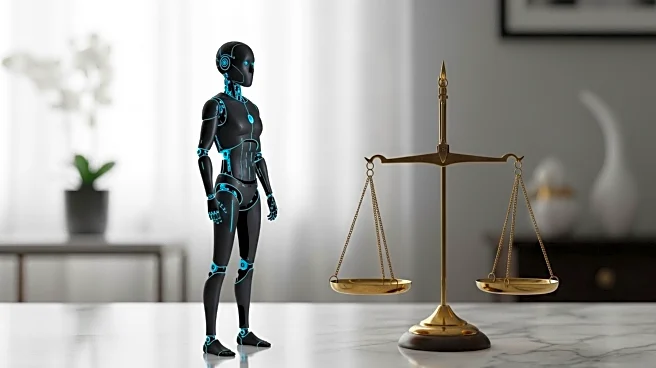What's Happening?
The use of Artificial Intelligence (AI) in legal settings is under scrutiny, as experts highlight the risks associated with relying on AI for legal advice. Large Language Models like ChatGPT have been found to produce inaccurate legal information, including fabricated cases and statutes. These 'hallucinations' have led to sanctions against attorneys who submitted AI-generated briefs. AI's limitations in understanding real-time legal developments and calculating complex injury damages further underscore the need for human oversight in legal processes.
Why It's Important?
The increasing reliance on AI in legal contexts raises concerns about the accuracy and reliability of AI-generated legal advice. Mistakes in legal documents can have significant financial and legal repercussions for individuals and businesses. The debate highlights the importance of human expertise in navigating complex legal systems and ensuring the integrity of legal proceedings. As AI continues to evolve, the legal industry must balance technological advancements with the need for professional judgment.
Beyond the Headlines
The ethical implications of using AI in legal settings extend beyond accuracy concerns. The potential for AI to replace human judgment raises questions about accountability and the role of technology in sensitive areas like law. As AI becomes more integrated into legal processes, stakeholders must address these ethical considerations to ensure fair and just outcomes.









